"Sicario: Is It a True Story?" refers to the question of whether the 2015 film Sicario, which depicts the brutal realities of the American-led War on Drugs, is based on. While the film's plot is fictional, it is inspired by real events ands.
Sicario highlights the complex and often violent nature of the drug trade, particularly along the US-Mexico border. The film's depiction of the involvement of government agencies, cartels, and vigilantes is a reflection of the ongoing struggles in the region.
Exploring the question of whether Sicario is a true story provides an opportunity to examine the broader context of the drug war and its impact on communities and individuals.
Sicario
The question of whether Sicario is a true story delves into the complex relationship between fiction and reality in storytelling, particularly in the context of films that explore sensitive and controversial topics.
- Fictional Narrative: While Sicario's plot is fictional, it is inspired by real events and informed by extensive research.
- Drug War Depiction: The film realistically portrays the brutality and moral complexities of the American-led War on Drugs, particularly along the US-Mexico border.
- Government Involvement: Sicario highlights the involvement of government agencies, both American and Mexican, in the drug trade, blurring the lines between law enforcement and criminality.
- Cartel Violence: The film unflinchingly depicts the extreme violence perpetrated by drug cartels, showcasing their power and ruthlessness.
- Vigilante Justice: Sicario explores the themes of vigilante justice and the slippery slope of morality in the pursuit of justice.
- Moral Ambiguity: The film presents morally ambiguous characters, forcing the audience to question their own beliefs and allegiances.
- Sensationalism vs. Realism: Sicario balances sensationalism with a commitment to realism, immersing the audience in the harsh realities of the drug war.
- Critical Acclaim: Sicario received critical acclaim for its unflinching portrayal of the drug war, with many praising its authenticity.
- Impact on Policy: The film's realistic depiction of the drug war has sparked discussions and debates about policy and approaches to combating drug trafficking.
In conclusion, Sicario's exploration of the question "Is it a true story?" transcends the binary of fiction and reality. The film's depiction of the drug war is a powerful reminder of the ongoing struggles and complexities in this global issue.
Fictional Narrative
This statement highlights the connection between the fictional narrative of Sicario and the real-world events that inspired it. Despite being a work of fiction, Sicario's plot is grounded in extensive research and real-life incidents, which adds to its authenticity and impact.
- Accuracy in Depiction: Sicario's creators consulted with experts and drew inspiration from, ensuring that the film's depiction of the drug war is accurate and realistic.
- Exploration of Complex Issues: The film uses its fictional narrative to explore complex issues related to the drug war, such as government involvement, cartel violence, and the moral dilemmas faced by those involved.
- Immersive Experience: By grounding the fictional narrative in real-world events, Sicario creates an immersive experience for the audience, allowing them to better understand the realities of the drug war.
- Provocation of Thought: The film's connection to real events provokes thought and discussion about the ongoing challenges of the drug war and the potential solutions.
In conclusion, the connection between Sicario's fictional narrative and the real events that inspired it enhances the film's authenticity, allows for a deeper exploration of complex issues, creates an immersive experience, and provokes thought and discussion about the ongoing challenges of the drug war.
Drug War Depiction
The depiction of the drug war in Sicario is crucial to understanding the film's connection to the question of "sicario is it a true story?". The film's realistic portrayal of the brutality and moral complexities of the drug war adds to its authenticity and impact.
- Violence and brutality: Sicario unflinchingly depicts the extreme violence and brutality associated with the drug trade, showcasing the ruthlessness of cartels and the challenges faced by law enforcement.
- Moral dilemmas: The film explores the moral dilemmas faced by individuals involved in the drug war, blurring the lines between right and wrong and highlighting the complexities of combating drug trafficking.
- Government involvement: Sicario sheds light on the involvement of government agencies in the drug trade, raising questions about the extent of corruption and the blurred lines between law enforcement and criminal activity.
- Impact on communities: The film portrays the devastating impact of the drug war on communities along the US-Mexico border, showcasing the human cost and social consequences of drug trafficking.
In conclusion, the realistic depiction of the drug war in Sicario adds to the film's authenticity and impact, contributing to its exploration of the complex and often violent nature of the American-led War on Drugs.
Government Involvement
The depiction of government involvement in Sicario is a crucial aspect of its connection to the question "sicario is it a true story?". The film's realistic portrayal of government agencies' involvement in the drug trade adds to its authenticity and impact.
- Corruption and Complicity: Sicario exposes the corruption and complicity within government agencies, showcasing how individuals in positions of power can become involved in criminal activities related to drug trafficking.
- Blurred Lines: The film blurs the lines between law enforcement and criminality, raising questions about the extent of government involvement in the drug trade and the potential consequences of such involvement.
- Real-Life Examples: The depiction of government involvement in Sicario is supported by real-life examples of corruption and complicity within government agencies, particularly in countries affected by drug trafficking.
- Moral Dilemmas: The film explores the moral dilemmas faced by government officials involved in the drug trade, highlighting the complex choices and ethical challenges they encounter.
In conclusion, the portrayal of government involvement in Sicario adds to the film's authenticity and impact, contributing to its exploration of the complex and often corrupting nature of the drug trade.
Cartel Violence
The portrayal of cartel violence in Sicario is a crucial aspect of its connection to the question "sicario is it a true story?". The film's realistic depiction of the extreme violence perpetrated by drug cartels adds to its authenticity and impact.
- Real-Life Examples: Sicario's depiction of cartel violence is supported by numerous real-life examples of the brutality and ruthlessness of drug cartels, particularly in Mexico and other countries affected by drug trafficking.
- Impact on Communities: The film showcases the devastating impact of cartel violence on communities, highlighting the fear, displacement, and human suffering caused by drug-related violence.
- Government Complicity: Sicario explores the potential complicity of government officials in cartel violence, raising questions about the extent of corruption and the blurred lines between law enforcement and criminal activity.
- Moral Dilemmas: The film presents moral dilemmas faced by individuals caught in the crossfire of cartel violence, highlighting the complex choices and ethical challenges they encounter.
In conclusion, the portrayal of cartel violence in Sicario adds to the film's authenticity and impact, contributing to its exploration of the complex and often violent nature of the drug trade and its consequences for communities and individuals.
Vigilante Justice
The exploration of vigilante justice in Sicario is deeply connected to the question of "sicario is it a true story?". Vigilante justice, the taking of the law into one's own hands, is a complex and controversial issue that arises in real-life situations, particularly in contexts where traditional justice systems are perceived as inadequate or ineffective.
Sicario presents a nuanced portrayal of vigilante justice, showcasing its allure and potential dangers. The film follows the character of Alejandro, a former prosecutor who resorts to vigilante tactics in his pursuit of justice for the murder of his family. Alejandro's actions raise questions about the morality of vigilante justice and the consequences of bypassing established legal processes.
The connection between vigilante justice in Sicario and the question of "sicario is it a true story?" lies in the film's exploration of the real-world implications of such actions. Sicario highlights the potential for vigilante justice to escalate violence, undermine the rule of law, and erode public trust in the justice system.
The film's realistic portrayal of vigilante justice adds to its authenticity and impact, prompting viewers to reflect on the complexities of justice, morality, and the limits of the law. Sicario's exploration of vigilante justice serves as a cautionary tale, reminding us of the importance of upholding the rule of law while acknowledging the frustrations that can lead individuals to seek justice outside of traditional systems.
Moral Ambiguity
The portrayal of morally ambiguous characters in Sicario is inextricably linked to the question of "sicario is it a true story?" Moral ambiguity refers to the complexity and fluidity of morality, often presenting characters with conflicting values, motivations, and actions.
- Blurring of Boundaries: Sicario presents characters whose actions challenge traditional notions of right and wrong, blurring the lines between hero and villain. This forces the audience to grapple with the complexities of morality and question their own beliefs and allegiances.
- Real-Life Parallels: The morally ambiguous characters in Sicario resonate with real-life situations, where individuals often face difficult choices with no easy answers. The film reflects the complexities of the drug war and the moral dilemmas faced by those involved.
- Subjectivity of Morality: Sicario highlights the subjective nature of morality, showcasing how perspectives and circumstances can influence one's ethical judgments. This challenges the audience to critically examine their own moral compass.
- Consequence of Ambiguity: The film explores the consequences of moral ambiguity, demonstrating how seemingly justified actions can lead to unforeseen and potentially devastating outcomes.
In conclusion, the portrayal of moral ambiguity in Sicario adds depth and realism to the film, mirroring the complexities of real-life moral dilemmas. It forces the audience to question their own beliefs, confront their biases, and grapple with the fluidity and subjectivity of morality in challenging contexts like the drug war.
Sensationalism vs. Realism
The connection between "Sensationalism vs. Realism: Sicario balances sensationalism with a commitment to realism, immersing the audience in the harsh realities of the drug war" and "sicario is it a true story" lies in the film's commitment to authenticity and its realistic portrayal of the drug war.
Sensationalism, while effective in capturing attention, can often distort reality and undermine the credibility of a narrative. Sicario, however, strives to present a balanced and realistic depiction of the drug war, avoiding excessive dramatization or glorification of violence.
The film's commitment to realism is evident in its meticulous attention to detail, extensive research, and collaboration with experts in the field. This approach lends authenticity to the film's portrayal of drug trafficking, cartel operations, and the challenges faced by law enforcement and civilians caught in the crossfire.
By balancing sensationalism with realism, Sicario immerses the audience in the harsh realities of the drug war, providing a deeper understanding of its complexities, consequences, and human toll. This commitment to authenticity enhances the film's credibility and strengthens its connection to the question of "sicario is it a true story," as it presents a believable and unflinching portrayal of the drug war's devastating impact.
Critical Acclaim
The critical acclaim for Sicario's unflinching portrayal of the drug war is closely connected to the question of "sicario is it a true story." Critical acclaim serves as an indicator of the film's authenticity and credibility.
- Recognition of Excellence: Critical acclaim signifies that Sicario has met high standards of filmmaking and storytelling. Its realistic and unflinching portrayal of the drug war has been widely recognized and praised by film critics and industry professionals.
- Validation of Authenticity: Positive critical reception often validates the authenticity of a film's portrayal. In the case of Sicario, the critical acclaim it received suggests that its depiction of the drug war is accurate and believable, lending credibility to the film's narrative.
- Enhanced Credibility: Critical acclaim enhances the credibility of Sicario as a source of information about the drug war. Audiences are more likely to trust a film that has been praised for its authenticity and realism, making it a valuable resource for understanding the complexities of this global issue.
- Increased Awareness: Critical acclaim can also increase awareness of Sicario and its unflinching portrayal of the drug war. Positive reviews and recognition help bring the film to the attention of a wider audience, fostering discussions and raising awareness about the realities of drug trafficking and its consequences.
In conclusion, the critical acclaim for Sicario's unflinching portrayal of the drug war is directly connected to the question of "sicario is it a true story." Critical acclaim serves as an indicator of the film's authenticity and credibility, validating its depiction of the drug war and enhancing its value as a source of information and a catalyst for discussion.
Impact on Policy
The realistic portrayal of the drug war in Sicario has significantly influenced policy discussions and debates, contributing to a deeper understanding of the issue and its complexities.
- Policy Scrutiny and Reform: Sicario's unflinching portrayal of the drug war's consequences has prompted policymakers to scrutinize existing policies and consider reforms to address the issue more effectively.
- International Collaboration: The film highlights the transnational nature of drug trafficking, fostering discussions on the need for international collaboration and cooperation to combat the drug trade.
- Community-Oriented Approaches: Sicario's depiction of the devastating impact of drug trafficking on communities has encouraged discussions on community-oriented approaches that prioritize prevention, harm reduction, and rehabilitation.
- Human Rights Concerns: The film's exploration of human rights violations and the erosion of rule of law in the context of the drug war has sparked debates on balancing security measures with the protection of fundamental rights.
The impact of Sicario on policy discussions underscores the film's role in shaping public discourse and influencing decision-making around drug trafficking. By shedding light on the complexities and consequences of the drug war, Sicario has contributed to a more informed and nuanced understanding of the issue.
FAQs
This section addresses frequently asked questions (FAQs) regarding the connection between the film Sicario and real-life events.
Question 1: Is Sicario based on a true story?
While Sicario's plot is fictional, it is inspired by real events and informed by extensive research. The film portrays the complexities and brutality of the drug war along the US-Mexico border.
Question 2: How accurate is Sicario's depiction of the drug war?
Sicario's portrayal of the drug war is widely considered to be realistic and unflinching. The film's creators consulted with experts and drew inspiration from real-world incidents to ensure authenticity.
Question 3: Does Sicario portray the involvement of government agencies in the drug trade?
Yes, Sicario highlights the involvement of both American and Mexican government agencies in the drug trade. The film explores the corruption, complicity, and blurred lines between law enforcement and criminal activity.
Question 4: How does Sicario address cartel violence?
Sicario depicts the extreme violence perpetrated by drug cartels, showcasing their power and ruthlessness. The film portrays the human cost and social consequences of cartel violence on communities.
Question 5: What is the significance of vigilante justice in Sicario?
Sicario explores the themes of vigilante justice and the slippery slope of morality. The film presents morally ambiguous characters and raises questions about the consequences of bypassing established legal processes.
Question 6: How has Sicario influenced policy discussions on drug trafficking?
Sicario's realistic portrayal of the drug war has sparked debates and discussions about policy and approaches to combating drug trafficking. The film has encouraged scrutiny of existing policies and consideration of community-oriented and human rights-based approaches.
Summary: Sicario's connection to real-life events adds depth and authenticity to its narrative. The film's realistic portrayal of the drug war, government involvement, cartel violence, and the complexities of justice has made it a valuable resource for understanding and addressing the ongoing challenges of drug trafficking.
Transition to the next article section: Explore the critical acclaim and cultural impact of Sicario.
Sicario
The film Sicario has garnered attention for its realistic portrayal of the drug war and its exploration of the moral complexities and challenges involved in combating drug trafficking. Here are a few key takeaways and benefits from Sicario:
Deep Dive into the Drug War: Sicario offers a comprehensive examination of the drug war, shedding light on its complexities, consequences, and impact on individuals and communities.
Unflinching Reality: The film's unflinching portrayal of cartel violence and government involvement highlights the harsh realities of the drug trade, fostering a deeper understanding of the challenges faced by law enforcement and civilians alike.
Moral Ambiguity and Ethical Dilemmas: Sicario presents morally ambiguous characters and explores the ethical dilemmas they face, prompting viewers to question their own beliefs and allegiances.
Exploration of Vigilante Justice: The film examines the themes of vigilante justice, raising questions about the consequences of bypassing established legal processes and the potential for unintended outcomes.
Policy and Real-World Impact: Sicario's realistic depiction of the drug war has sparked discussions and debates about policy and approaches to combating drug trafficking, contributing to a more informed understanding of the issue.
Overall, Sicario serves as a valuable resource for understanding the intricacies of the drug war, its human toll, and the challenges involved in addressing this global issue. The film's realistic portrayal and exploration of complex themes encourage critical thinking, foster discussions, and contribute to ongoing efforts to combat drug trafficking.
Conclusion
The exploration of "sicario is it a true story" reveals the intricate connection between the film Sicario and real-life events. While the film's narrative is fictional, its depiction of the drug war, government involvement, cartel violence, and moral complexities is deeply rooted in reality. Sicario's commitment to authenticity and unflinching portrayal have earned critical acclaim and sparked discussions about the ongoing challenges of drug trafficking.
The film serves as a powerful reminder of the human cost and societal impact of the drug trade. It challenges viewers to confront difficult questions about ethics, justice, and the limits of the law. Sicario's exploration of "is it a true story?" transcends mere entertainment; it provokes thought, encourages dialogue, and contributes to a deeper understanding of one of the most pressing issues of our time.
Unveiling The Extraordinary Husband Behind Maria Sol Messi
Unveiling The Truth: Is Carol Burnett A Smoker? Secrets Revealed
Unveiling Tyga's Height: Discoveries And Insights
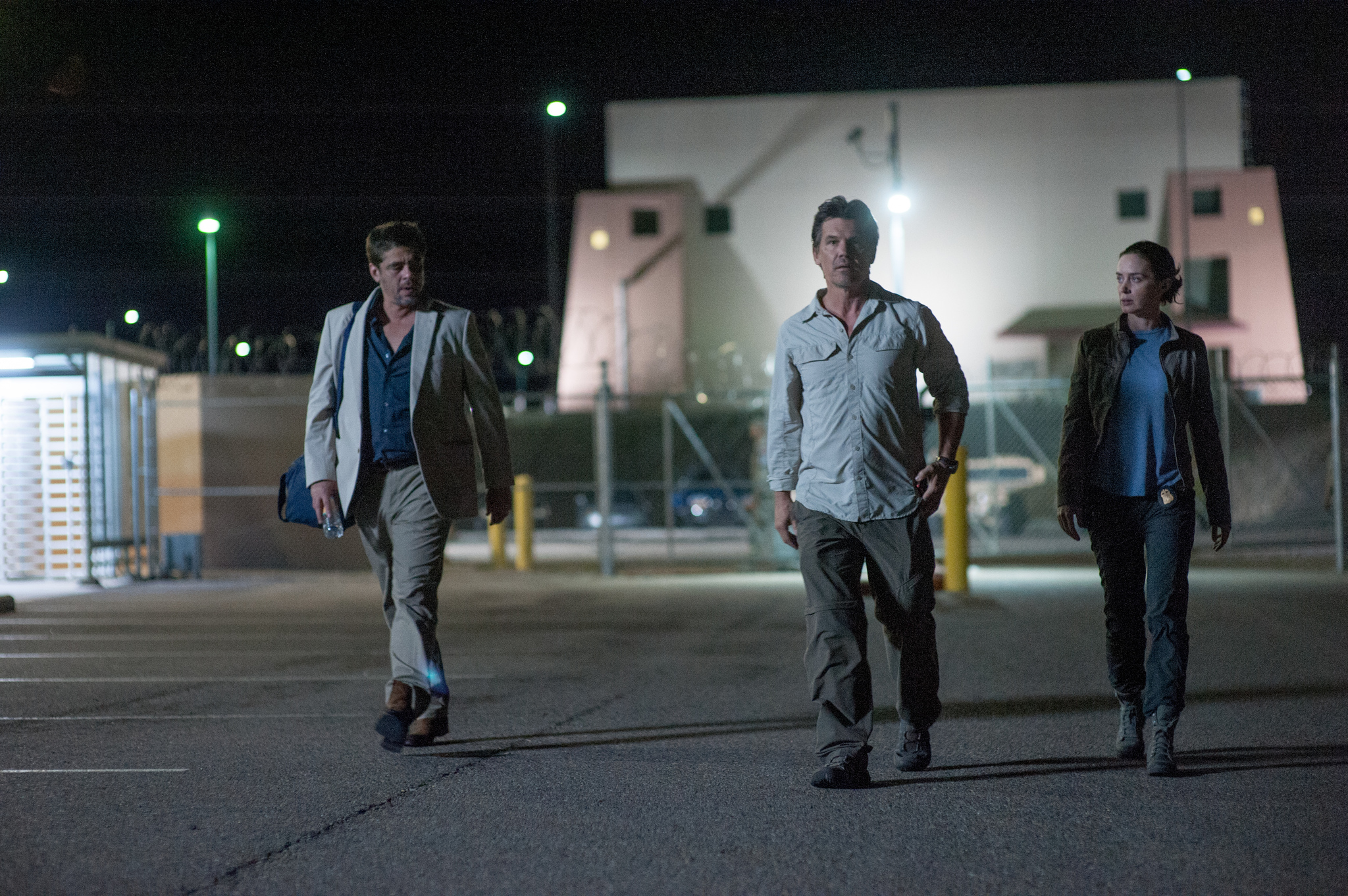
Is Sicario a True Story? Is the Movie Based on Real Life Drug Cartel?
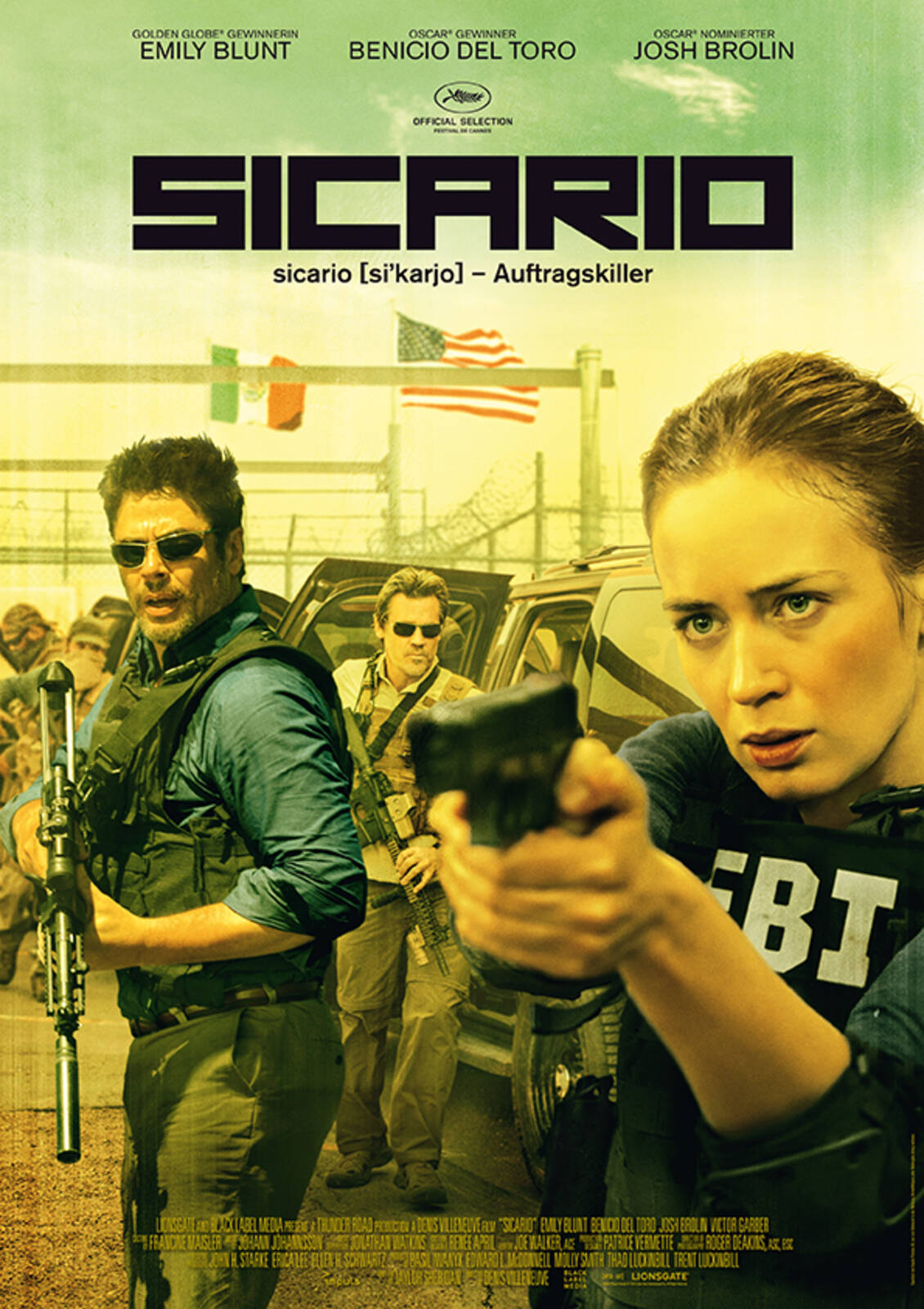
Movie Sicario Cineman
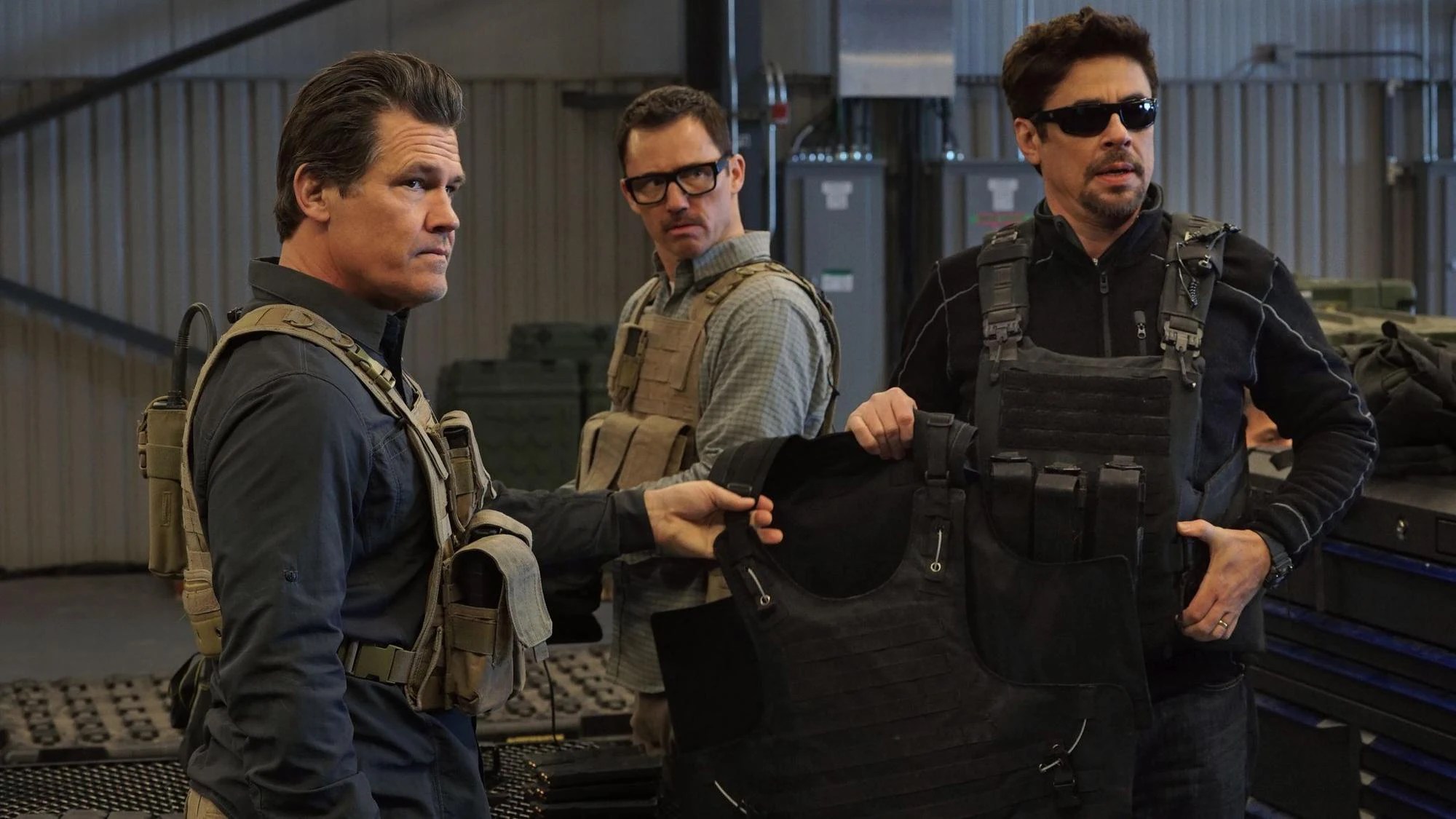
Is 'Sicario 2' Based On A True Story? The Movie Reflects The Real World
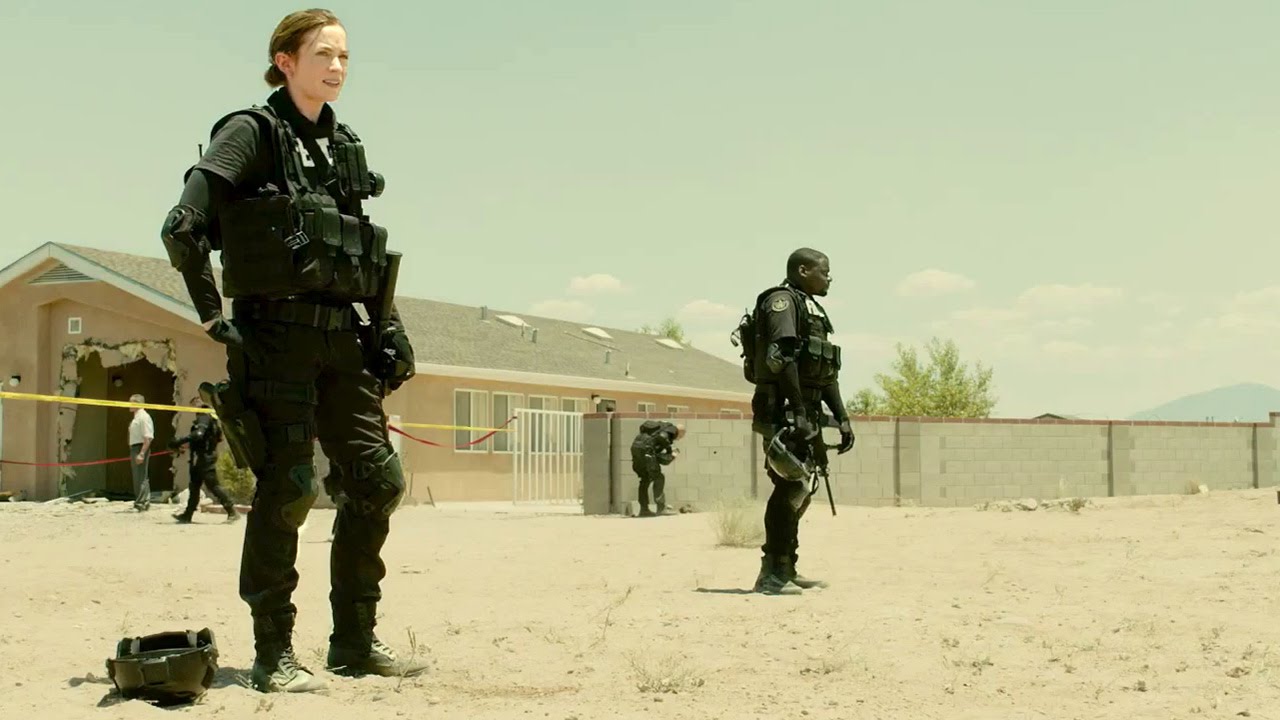
Is Sicario a True Story? Is the Movie Based on Real Life Drug Cartel?
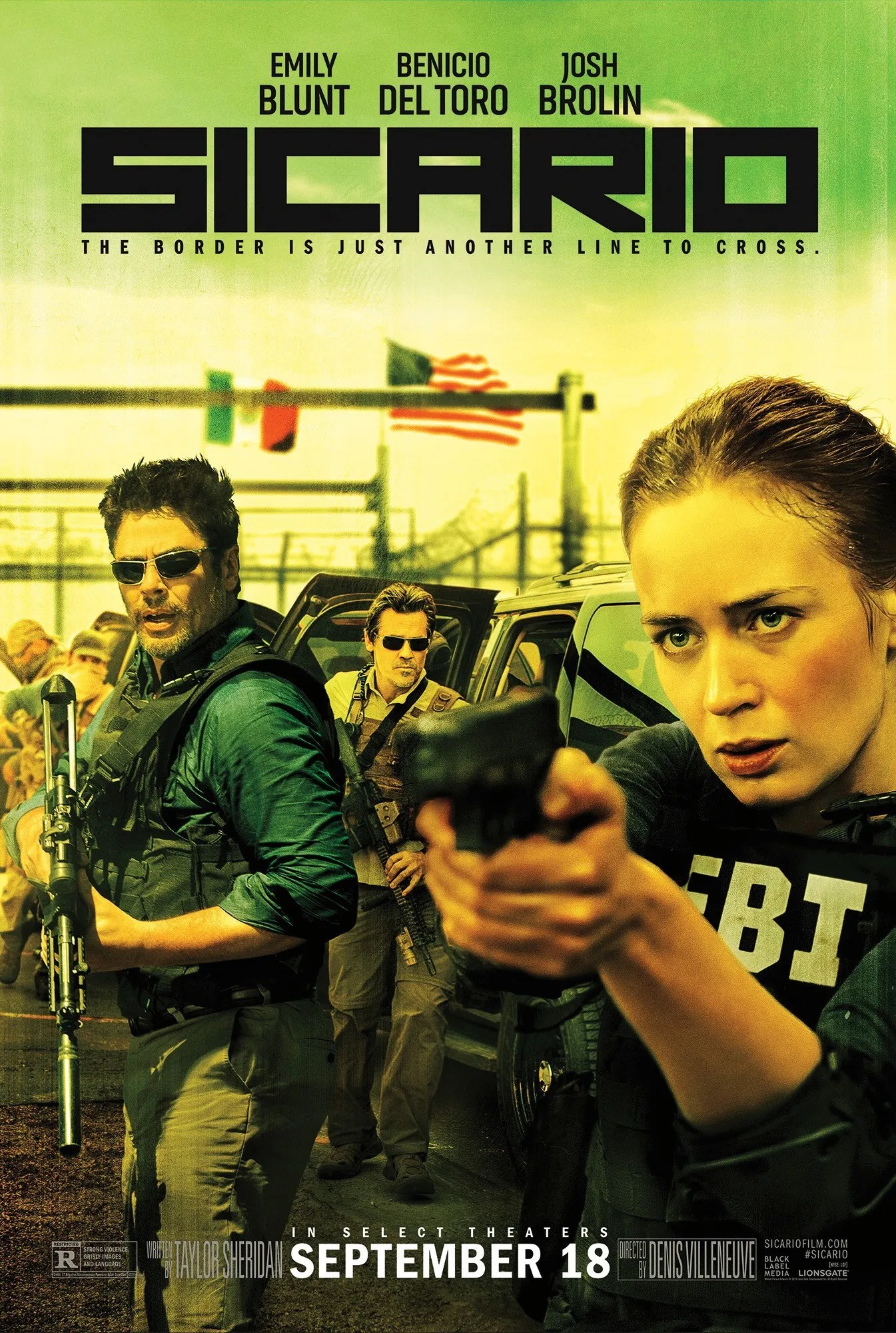
Sicario (Film) TV Tropes
ncG1vNJzZmibkaOupa3Nnq6sZpKhvKN6wqipnmannrulu9asZaedpGSwprfOcGasoZOWv6q7jKKqZqGkYq5uwNGunGarpKS%2FunrHraSl